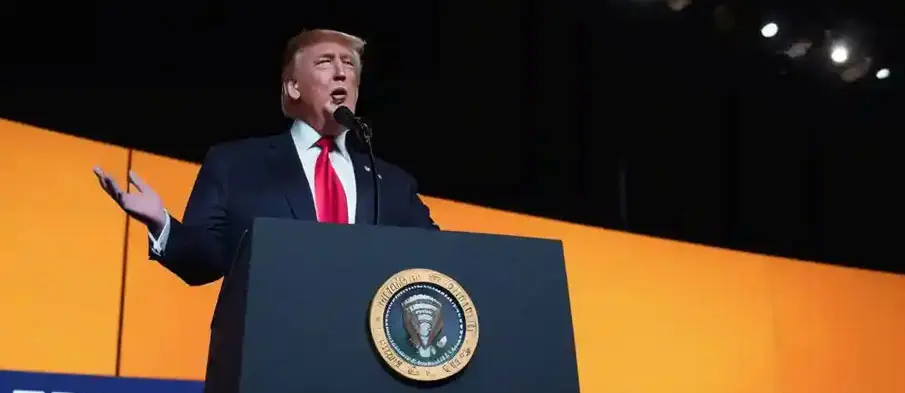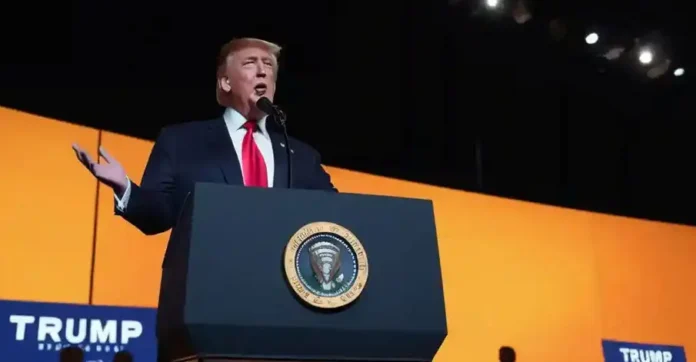 Donald Trump has introduced a sweeping national plan aimed at bolstering the United States’ position in artificial intelligence, with a focus on deregulation and global dominance. The newly released 25-page “America’s AI Action Plan” lays out a vision to supercharge innovation, build essential infrastructure, and secure international leadership in the AI space—particularly to outpace China.
Donald Trump has introduced a sweeping national plan aimed at bolstering the United States’ position in artificial intelligence, with a focus on deregulation and global dominance. The newly released 25-page “America’s AI Action Plan” lays out a vision to supercharge innovation, build essential infrastructure, and secure international leadership in the AI space—particularly to outpace China.
Trump characterized the AI race as a national imperative, stating, “America is the country that started the AI race, and as president of the United States, I’m here today to declare that America is going to win it.” He described the challenge as “a test of our capacities unlike anything since the dawn of the space age.”
The plan proposes more than 90 government-led initiatives, most notably a wide rollback of regulations. The administration pledged to “remove red tape and onerous regulation” that could slow private sector progress. It also includes executive orders that push for uniform federal standards on AI, seeking to block individual U.S. states from imposing their own regulations. “We have to have a single federal standard, not 50 different states, regulating this industry of the future,” Trump said.
The American Civil Liberties Union criticized the move, arguing it would undercut efforts to protect civil rights. It warned that eliminating state-level oversight could hurt communities by allowing biased AI systems to proliferate in areas such as healthcare, education, and law enforcement.
A significant portion of the strategy centers on accelerating infrastructure development, including new data centers and energy facilities. The administration proposes easing environmental reviews to fast-track construction, while also advocating for expanded use of federal lands. It calls for new coal and nuclear power projects to support the energy demands of AI growth.
In addressing AI content issues, Trump stressed that AI systems used by the federal government must be “free from ideological bias” and avoid so-called “social engineering agendas,” such as diversity and inclusion efforts. He also demanded AI systems be immune from many copyright claims, calling it a “common sense” step for innovation.
Efforts to curb Chinese influence in global AI governance and strengthen export controls are also outlined. Secretary of State Marco Rubio said the plan aims to “ensure America sets the technological gold standard worldwide, and that the world continues to run on American technology.”
Critics argue the plan favors major tech firms at the expense of environmental and social safeguards. Jean Su of the Center for Biological Diversity called it “a twisted Gilded Age playbook that rewards the rich while punishing everyday Americans and the environment.”





